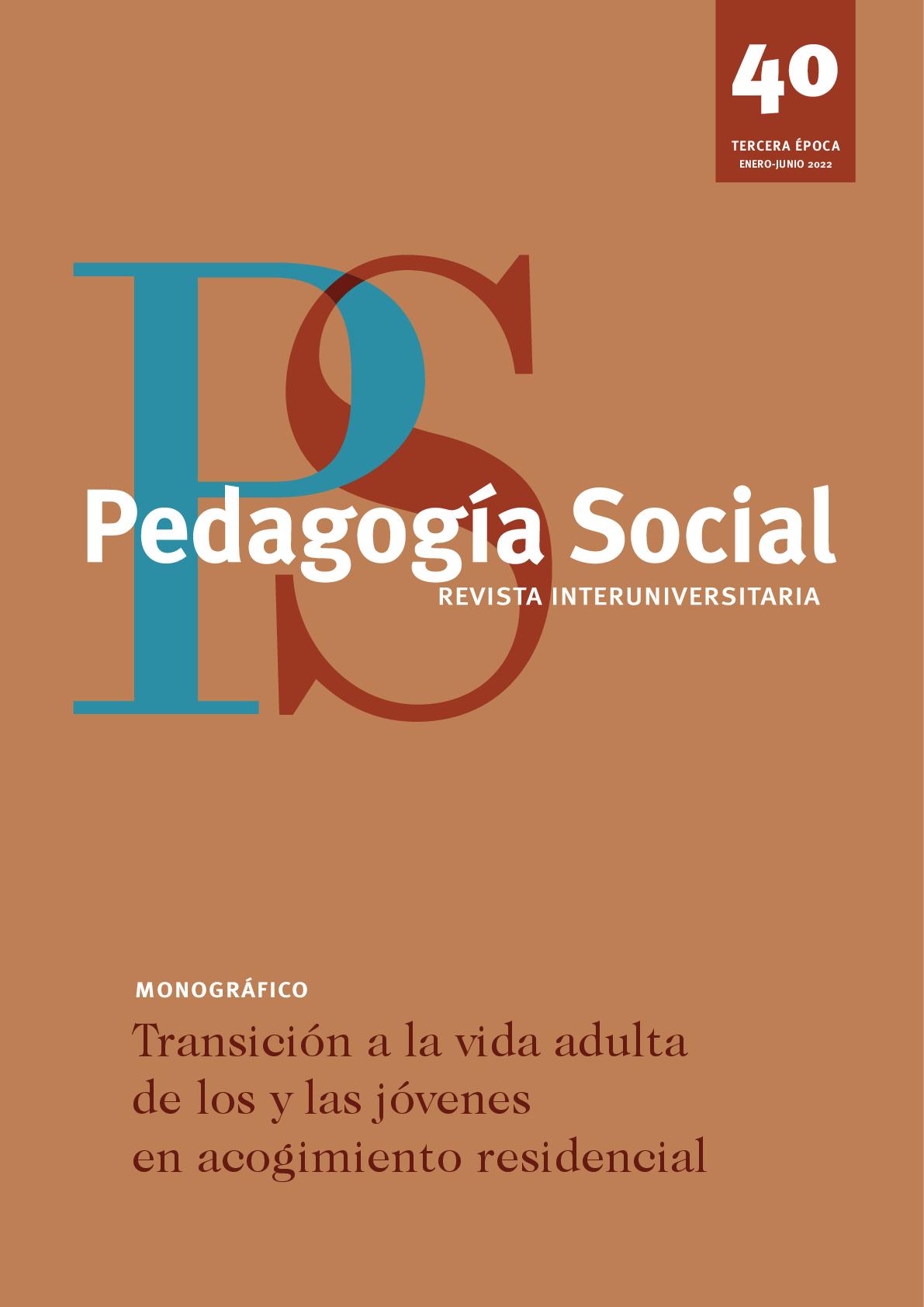La influencia de la preparación para las relaciones socioafectivas en el bienestar psicológico y la autonomía de los jóvenes en el sistema de protección
DOI:
https://doi.org/10.7179/PSRI_2022.40.03Palabras clave:
Jóvenes, sistema de protección, bienestar psicológico, autonomía, relaciones socialesResumen
La preparación para las relaciones socioafectivas ocupa un papel relevante en la intervención con los jóvenes que se encuentran en el sistema de protección. Este artículo presenta resultados de un estudio sobre el efecto que tiene esta intervención en el bienestar psicológico sobre este colectivo. Asimismo, se pretende determinar si dicha preparación influye en su autonomía para la vida independiente. Para ello, se utilizó un diseño de investigación cuantitativo de tipo descriptivo en el marco de una investigación de mayor alcance sobre las transiciones de los jóvenes egresados del sistema de protección. El tipo de muestreo fue no probabilístico, determinado por conveniencia. El número de participantes fue de 102 jóvenes varones y mujeres. Se utilizaron la escala de bienestar psicológico y la escala de autonomía en el tránsito a la vida adulta (EDATVA). Para el análisis inferencial se aplicó la prueba de Kruskal-Wallis. Los resultados evidencian que la preparación percibida por los jóvenes para las relaciones familiares y sociales influye positivamente en el bienestar psicológico y en la autonomía. Estos hallazgos indican la necesidad de aplicar estrategias de intervención socioeducativas dirigidas a la mejora de las relaciones familiares y sociales en este colectivo.
Descargas
Descargas
Publicado
Cómo citar
Número
Sección
Licencia
Derechos de autor 2022 Pedagogía Social. Revista Interuniversitaria

Esta obra está bajo una licencia internacional Creative Commons Atribución-NoComercial-CompartirIgual 4.0.
Derechos de reproducción y archivo
La versión publicada de los artículos podrá ser autoarchivada por sus autores en repositorios institucionales y temáticos de acceso abierto. No obstante la reutilización total o parcial de los mismos en nuevos trabajos o publicaciones deberá ser autorizada por Pedagogía Social. Revista Interuniversitaria.
Los trabajos publicados deberán ser citados incluyendo el título de la Revista, Pedagogía Social. Revista Interuniversitaria, nº, páginas y año de publicación.
Responsabilidades éticas
Pedagogía Social. Revista Interuniversitaria no acepta material publicado anteriormente en otros documentos. Los/as autores/as son responsables de obtener los permisos oportunos para reproducir parcialmente material de otras publicaciones y citar correctamente su procedencia. Estos permisos deben solicitarse tanto al autor/a como a la editorial que ha publicado dicho material.
Es obligación de Pedagogía Social. Revista Interuniversitaria detectar y denunciar prácticas fraudulentas.
En la lista de autores/as firmantes deben figurar únicamente aquellas personas que han contribuido intelectualmente al desarrollo del trabajo.
La revista espera que los/as autores/as declaren cualquier asociación comercial que pueda suponer un conflicto de intereses en conexión con el artículo remitido.
Los autores deben mencionar en el manuscrito, preferentemente en el apartado del método, que los procedimientos utilizados en los muestreos y controles han sido realizados tras la obtención de consentimiento informado.
La revista no utilizará ninguno de los trabajos recibidos con otro fin que no sea el de los objetivos descritos en estas normas.
Aviso de derechos de autor/a
© Pedagogía Social. Revista Interuniversitaria. Los originales publicados en las ediciones impresa y electrónica de esta Revista son propiedad del Pedagogía Social. Revista Interuniversitaria, siendo necesario citar la procedencia en cualquier reproducción parcial o total.
Salvo indicación contraria, todos los contenidos de la edición electrónica se distribuyen bajo una licencia de uso y distribución “Creative Commons Reconocimiento-No Comercial 3.0 España” (CC-by-nc). Puede consultar desde aquí la versión informativa y el texto legal de la licencia. Esta circunstancia ha de hacerse constar expresamente de esta forma cuando sea necesario.






